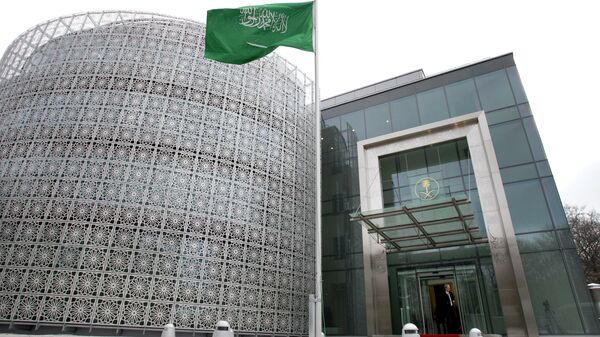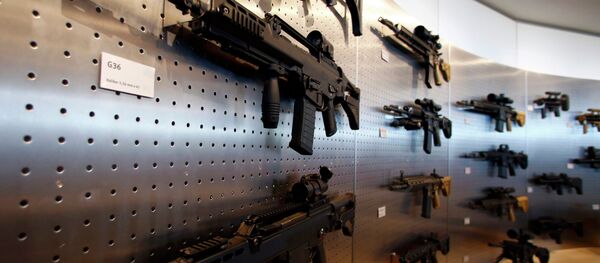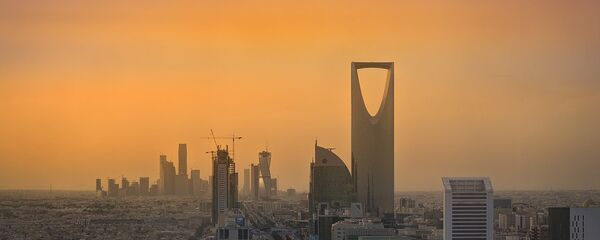Kristian Rouz — Saudi authorities plan to increase budget spending in a bid to modernise the nation's economy, while also investing in potentially lucrative projects in foreign countries. These efforts come as part of Riyadh's effort to ease Saudi Arabia's reliance on oil revenue, as well as improving the Kingdom's international ties, which were badly shaken by a diplomatic scandal last year.
READ MORE: Saudi Arabia Unveils $427-Billion Plan to Reform Economy
According to a Saudi royal decree, the Kingdom will spend 11.5 billion riyals ($3.1 billion) to compensate private-sector enterprises for the services of foreign specialists working in key sectors of the nation's economy. The move comes after several companies struggled to pay for expat work permits in the 2017-2018 fiscal year, as observed by the Saudi Ministry of Labour and Social Development.
"This initiative will support private sector companies, help them overcome the obstacles and achieve their goals and encourage them to expand employment of Saudi citizens," Saudi Labour Minister Ahmed bin Suleiman al-Rajhi said.
The project is strategically significant in light of the Pakistani-Chinese Economic Corridor joint initiative. Saudi Crown Prince Mohammed Bin Salman is reportedly expected to visit the Pakistani capital soon, as he seeks to bolster bilateral ties.
Experts say the Gwadar project could greatly facilitate and streamline Saudi exports of oil to China, while the latter is seeking additional channels of energy imports in wake of the expected decline in Iranian production due to the re-imposition of US sanctions.
"The outcome of the talks so far has been very positive, and this is going to be one of the biggest-ever Saudi investments in Pakistan," an anonymous Pakistani official said, according to AFP. "We hope that an agreement to this effect will be signed during the upcoming visit of the Saudi crown prince to Pakistan."
Separate reports claimed Saudi Arabia could invest a total of $30 billion in the Pakistani economy, eyeing hefty returns on its investments in the medium-to-long-term.
Riyadh's ambitious spending plans come despite ongoing volatility in global oil prices which are rendering Saudi budget revenue highly unpredictable. However, according to the Saudi Chamber of Commerce and Industry, the oil-rich Kingdom has enjoyed a windfall of foreign investment over the past few years, making its own spending plans more feasible.
READ MORE: Saudi Arabia Deports Alleged Terror Operative to India — Reports
Saudi officials the Kingdom attracted some $43 bln worth of foreign direct investments (FDI) from 361 international companies between 2013 and 2017. Moreover, the body said foreign investors have also brought new technology and administrative skills to the country, resulting in improvements in the efficiency of Saudi economic throughput.
The ongoing influx of capital has allowed Saudi Arabia to shift attention from domestic development to opportunities overseas, experts say.
"One of the goals for Saudi Arabia expanding investments in refining worldwide is to secure market share and sustainable exports in the face of international competition," Saudi economist Fadhl al-Bouenain said.
Meanwhile, the decision to support the hiring of expats appears to reflect Riyadh's push for modernisation of the Saudi economy. At least 10 million foreign nationals are working in the country, with the majority involved in the energy and construction sectors.
Most foreign workers are low skilled, but highly educated professionals have proven to have greatly contributed to economic development of Saudi Arabia over the past few decades.
"The decision will have a huge positive impact on the Saudi economy and especially the manpower intensive construction sector, which was the worst hit by the collective invoice," Osama al-Afaliq of the Saudi Contractors Association said.
The Saudi government is yet to announce multiple investment projects at home, which are expected to amount to a total of $453 billion across four sectors of the Kingdom's economy: mining, energy, logistics, and industrial production.
For its part, the Saudi development plan, known as Vision 2030, includes an increase in foreign investment from 3.8 per cent of GDP in 2016 to 5.7 per cent in 2030, with the revenue from foreign investments likely to be repatriated to Saudi Arabia.





